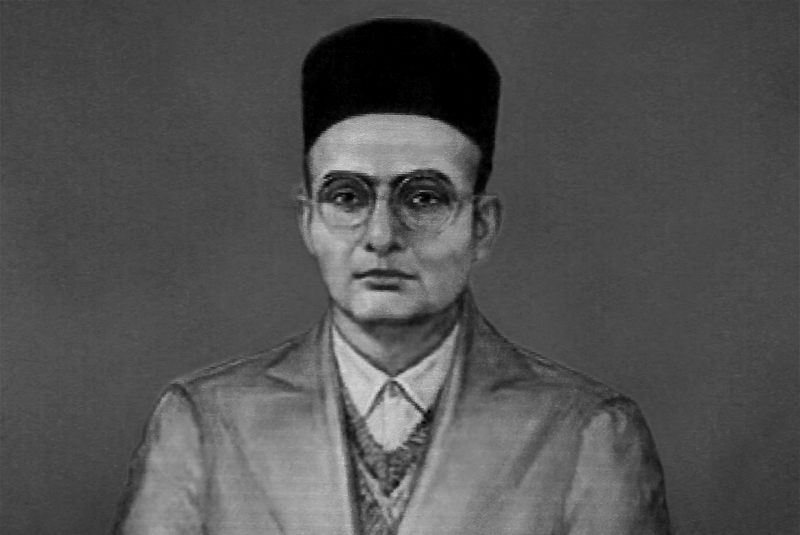SAVARKAR REMAINS INCARCERATED
- By : Anirban Ganguly
- Category : Articles

A selective and motivated reading of Veer Savarkar has suppressed the many facets of his worldview which portray him as a nationalist and patriot
If one were to designate one historic national leader who has received unfair and indifferent treatment in independent India then the name of Veer Savarkar, whose 49th death anniversary passed on 26th February, must perhaps come first. At the hands of the ill-informed, the half-read, self-styled historians, politico-intellectuals and pseudo-academics, the legacy of Savarkar’s contribution to national emancipation and to the formulation of a national political discourse and vision has received a deliberate and motivated short shrift.
Rarely does one see a political leader whose political incarceration lasted over decades — the colonial Government considered Savarkar so dangerous for their continued political domination that his incarceration, arrest, confinement in some form or other lasted from 1911 to around 1937 — an unparalleled saga of victimisation and sacrifice for the political emancipation of one’s motherland.
Reaching the Cellular Jail a little after the first batch of political prisoners under Barindra Kumar Ghose, Upendranath Banerjee and Ullaskar Dutta were deported to rot in that colonial hell-hole, Savarkar underwent the torturous daily grind, a grind that almost always killed the spirit and often the body as well. Yet the deep urge for revolution had engendered a rare resilience in him, as it had in a number of the early and now forgotten revolutionaries.
It such a resilience that made him write from Cellular jail, “Fortunately for me my mind has so quickly adapted itself to the changes in circumstances. It seems so strange that a nature so restless and active, roaming over continents, should so quickly feel quite at home in a cell hardly a dozen feet in length. And yet one of the kindest gifts of Providence to Humanity is this plasticity, this adaptability of human mind to the ever changing environments of life.” Ironically a discerning Member of Parliament noted how the Cellular Jail light and sound show today mentions Savarkar twice in the commentary while referring to his jailors at least a dozen times!
The reading of Savarkar continues to be selective. Why, for example, is it not adequately pointed out that there was no shred of evidence against Savarkar in the Mahatma Gandhi assassination case, and that even stalwarts like BR Ambedkar confessed to how the entire thing was set up due to Jawaharlal Nehru’s acute aversion and hatred for the man? Why is not known that Nathuram Godse denounced Savarkar, when the latter argued “that any Indian Government formed to conduct” the “freed Indian State should be no longer looked upon as a Government of a party — a Congress Government — but must be honoured and obeyed as a National Government of Hindustan and [that] howsoever they deplored the creation of Pakistan their future motto should be a loyal and all out support to the newly born Free Indian State. Thus alone would it be possible to safeguard the newly won Freedom.”
Savarkar’s insistence on hoisting the “tri-colour with the wheel” along with the “bhagwa flag”, his emphasis that the new Government must be recognised as a National Government whatever may be the elected party leading it, and must be supported by all patriots” was unacceptable to Godse.
A selective and motivated reading of Savarkar has succeeded in suppressing the many facets of his worldview, facets which invariably portray him as a pre-eminent nationalist and a patriot. One can hardly differ with Savarkar when he says, “Hindudom cannot advance or fulfil its life-mission unless and until our Motherland is set free and consolidated into an Indian State in which all our countrymen to whatever religion or sect or race they belong are treated with perfect equality and none allowed to dominate others or is deprived of his just and equal rights of free citizenship as long as everyone discharges the common obligations and duties which one owes to the Indian Nation as a whole.”
Yet, Savarkar’s multi-layered legacy has largely remained un-assessed — its marginalisation in the last six decades has served certain political interests.

















